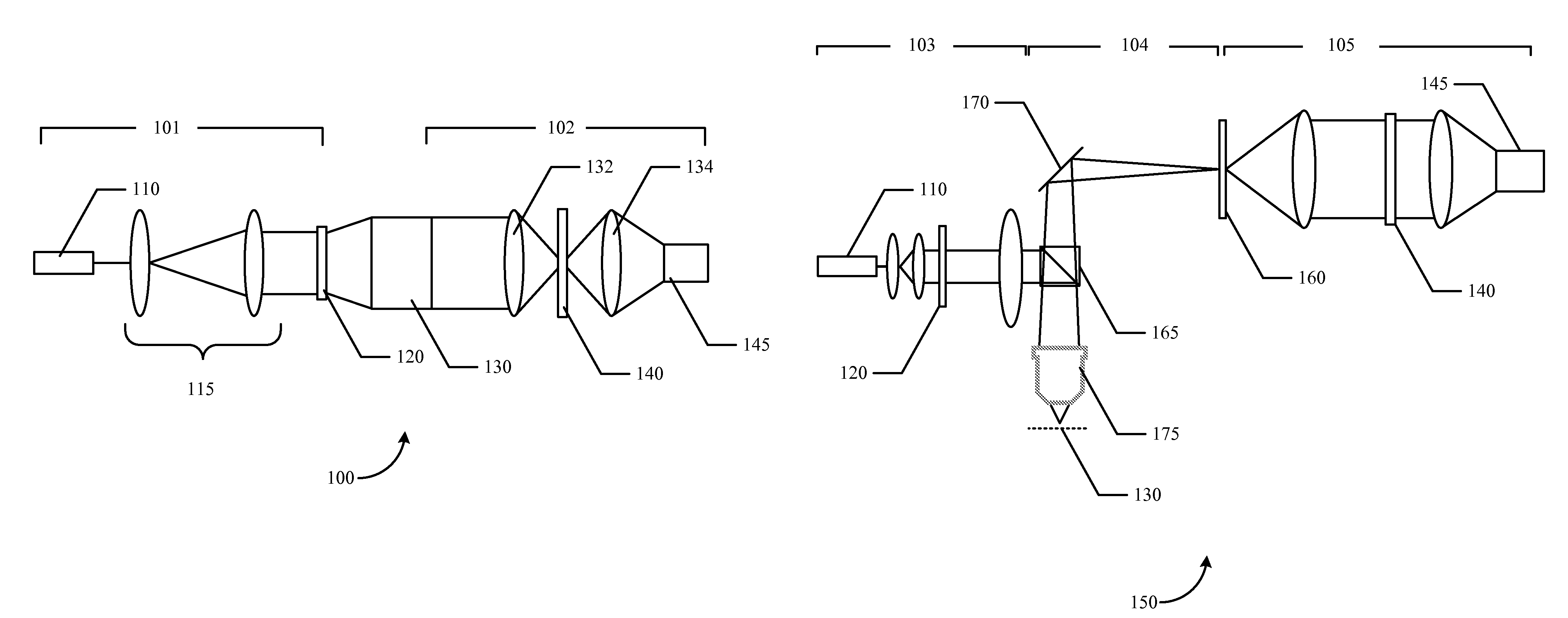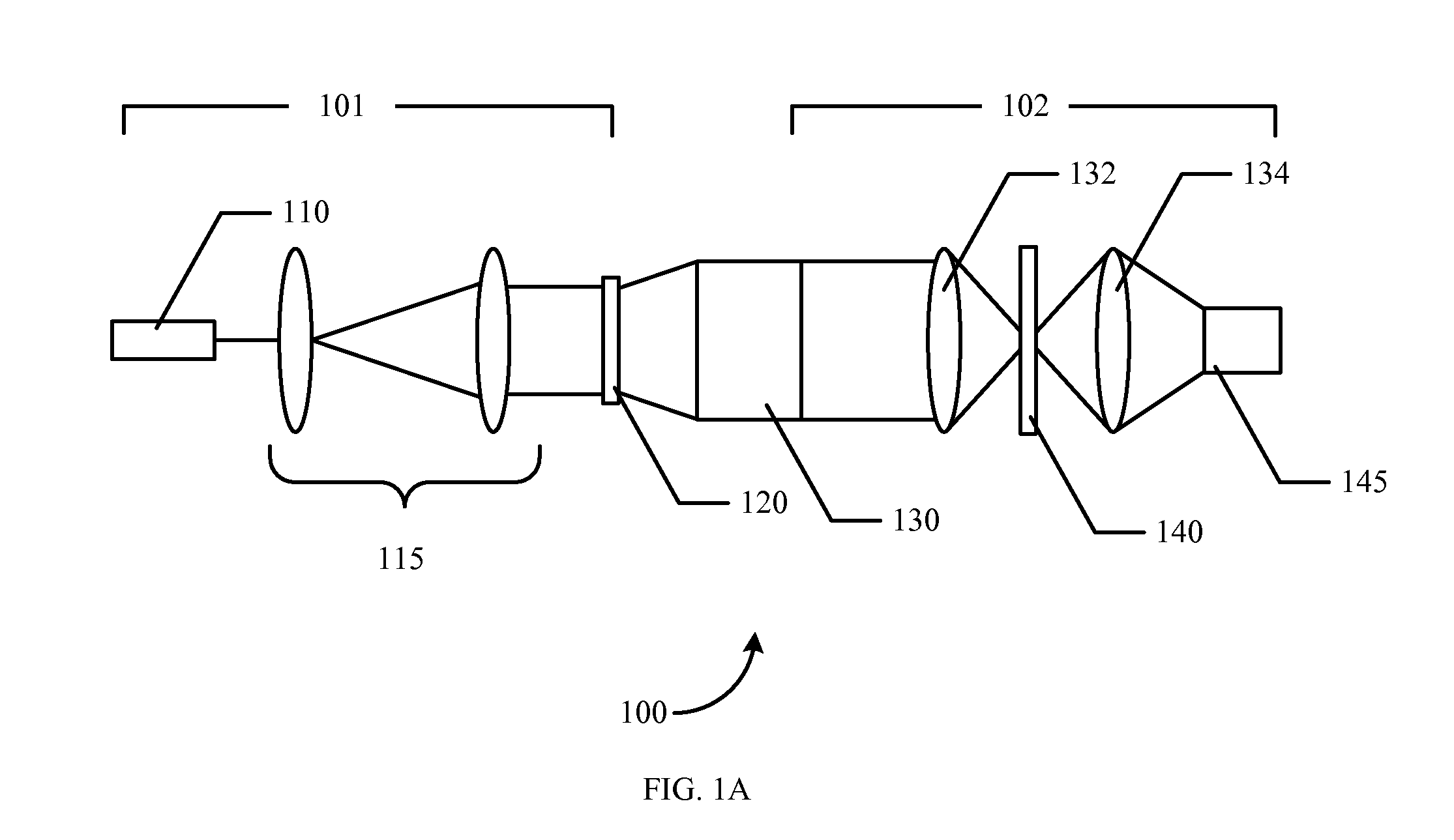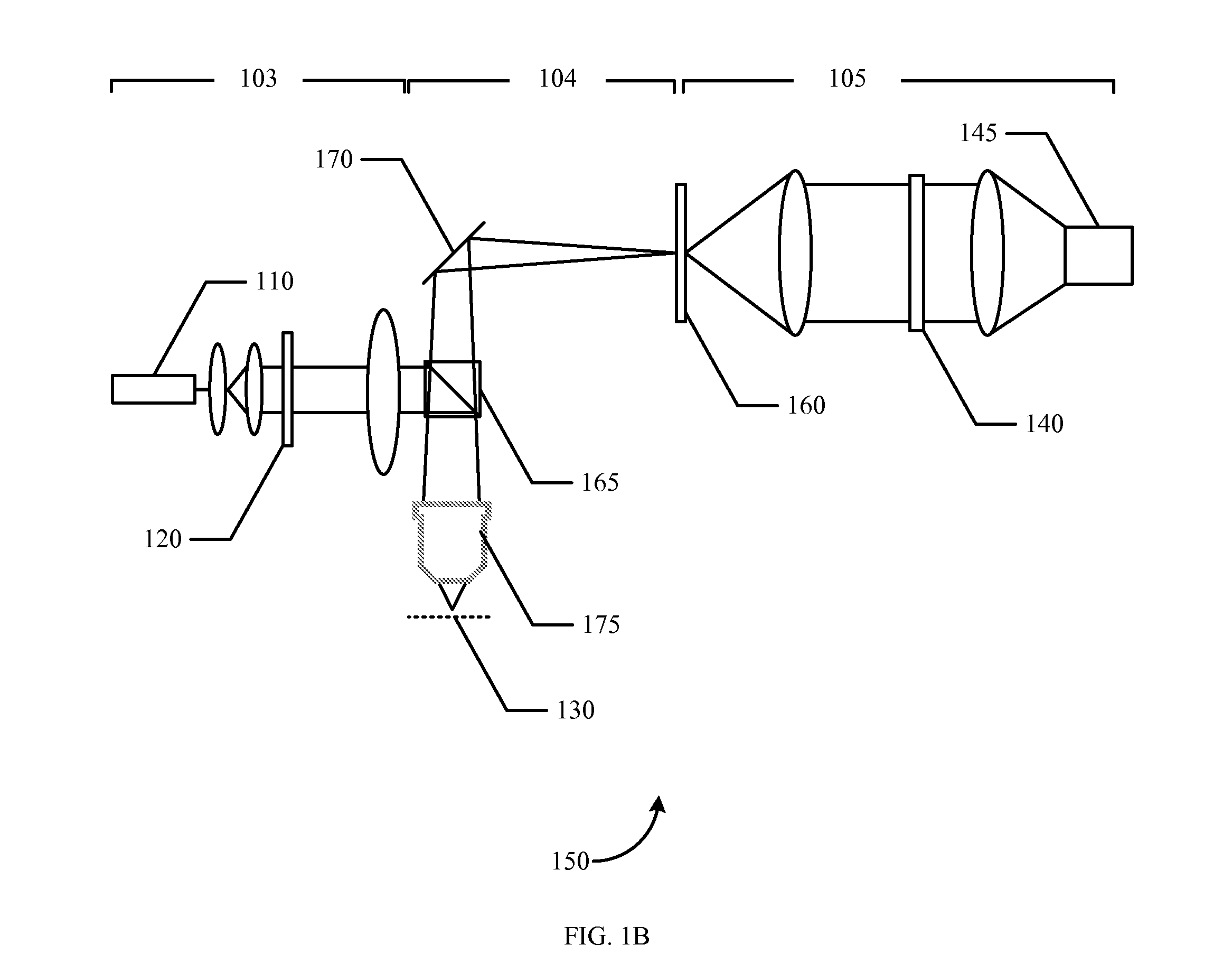Method and system for optical imaging and ranging
a technology of optical imaging and ranging, applied in the field of optical imaging, can solve the problems of limiting the depth resolution of classical apertures, and none of these methods can achieve super-resolution beyond the depth of field, and achieve the effect of optimizing depth estimation and maximizing fisher information
- Summary
- Abstract
- Description
- Claims
- Application Information
AI Technical Summary
Benefits of technology
Problems solved by technology
Method used
Image
Examples
Embodiment Construction
[0030]In one embodiment of the invention, methods and systems are provided for optical imaging and ranging based on engineering the point spread function (“PSF”) to achieve enhanced performance in the task of depth estimation. The PSF is optimized to enhance the discrimination of depth by reducing the uncertainty in depth estimation after an inversion algorithm performed in a (typically digital) computer. Physical design and postprocessing (or inversion) algorithms are matched to the specific task of depth estimation. Therefore, the PSF is optimized with respect to a mathematical measure such as Fisher information. However, other measures of good depth discrimination, such as mutual information or entropy among optical intensity distributions in depth, are also possible.
[0031]This principle can be applied to visible optical radiation, infrared or ultraviolet. It can also be used for any other electromagnetic radiation such as microwaves or radio waves. Moreover, it can be used with ...
PUM
 Login to View More
Login to View More Abstract
Description
Claims
Application Information
 Login to View More
Login to View More - R&D
- Intellectual Property
- Life Sciences
- Materials
- Tech Scout
- Unparalleled Data Quality
- Higher Quality Content
- 60% Fewer Hallucinations
Browse by: Latest US Patents, China's latest patents, Technical Efficacy Thesaurus, Application Domain, Technology Topic, Popular Technical Reports.
© 2025 PatSnap. All rights reserved.Legal|Privacy policy|Modern Slavery Act Transparency Statement|Sitemap|About US| Contact US: help@patsnap.com



